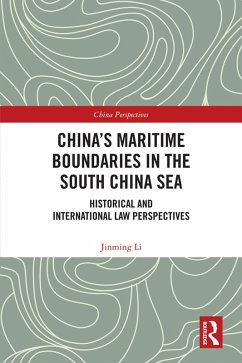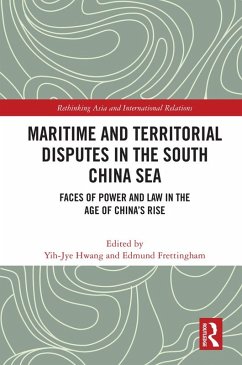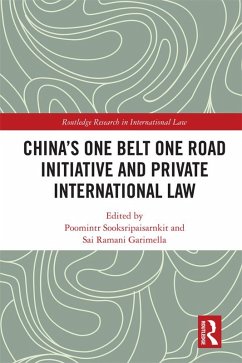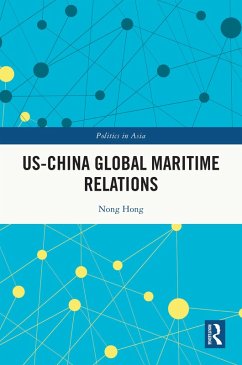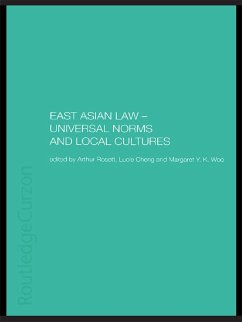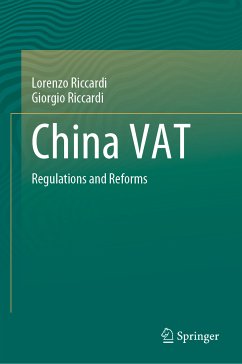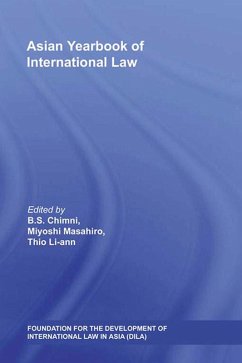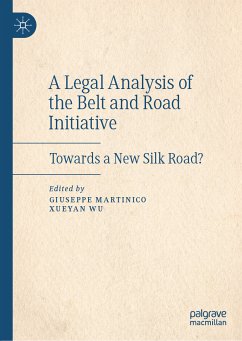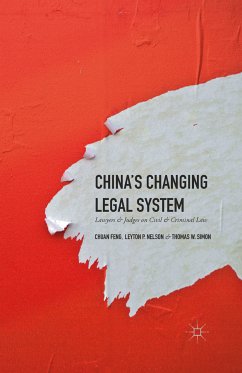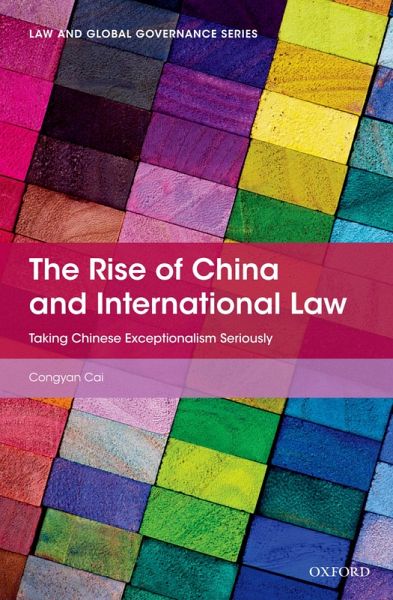
The Rise of China and International Law (eBook, PDF)
Taking Chinese Exceptionalism Seriously
Versandkostenfrei!
Sofort per Download lieferbar
48,95 €
inkl. MwSt.
Weitere Ausgaben:

PAYBACK Punkte
24 °P sammeln!
The rise of China signals a new chapter in international relations. How China interacts with the international legal order--namely, how China utilizes international law to facilitate and justify its rise and how international law is relied upon to engage a rising China--has invited growing debate among academics and those in policy circles. Two recent events, the South China Sea Arbitration and the US-China trade war, have deepened tensions. This book, for the first time, provides a systematic and critical elaboration of the interplay between a rising China and international law. Several cruci...
The rise of China signals a new chapter in international relations. How China interacts with the international legal order--namely, how China utilizes international law to facilitate and justify its rise and how international law is relied upon to engage a rising China--has invited growing debate among academics and those in policy circles. Two recent events, the South China Sea Arbitration and the US-China trade war, have deepened tensions. This book, for the first time, provides a systematic and critical elaboration of the interplay between a rising China and international law. Several crucial questions are broached. These include: How has China adjusted its international legal policies as China's state identity changes over time, especially as it becomes a formidable power? Which methodologies has China adopted to comply with international law and, in particular, to achieve its new legal strategy of norm entrepreneurship? How does China organize its domestic institutions to engage international law in order to further its ascendance? How does China use international law at a national level (in the Chinese courts) and at an international level (for example, lawfare in international dispute settlement)? And finally, how should "Chinese exceptionalism" be understood? This book contributes significantly to the burgeoning and highly relevant scholarship on China and international law.
Dieser Download kann aus rechtlichen Gründen nur mit Rechnungsadresse in A, B, BG, CY, CZ, D, DK, EW, E, FIN, F, GR, HR, H, IRL, I, LT, L, LR, M, NL, PL, P, R, S, SLO, SK ausgeliefert werden.




